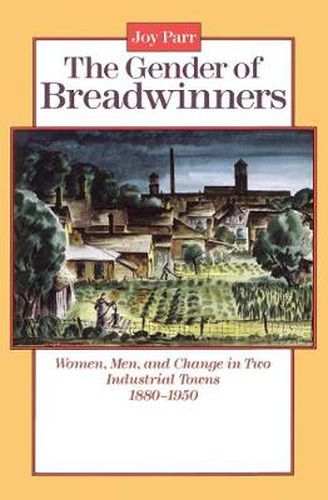Readings Newsletter
Become a Readings Member to make your shopping experience even easier.
Sign in or sign up for free!
You’re not far away from qualifying for FREE standard shipping within Australia
You’ve qualified for FREE standard shipping within Australia
The cart is loading…






This is a story of two Ontario towns, Hanover and Paris, that grew in many parallel ways. They were about the same size, and both were primarily one-industry towns. But Hanover was a furniture-manufacturing centre; most of its workers were men, drawn from a community of ethnic German artisans and agriculturalists. In Paris the biggest employer was the textile industry; most of its wage earners were women, assisted in emigration from England by their Canadian employer.
Joy Parr considers the impacy of these fundamental differences from a feminist perspective in her study of the towns’ industrial, domestic, and community life. She combines interviews of women and men of the towns with analyses of a wide range of documents: records of the firms from which their families worked, newspapers, tax records, paintings, photographs, and government documents.
Two surprising and contrasting narratives emerge. The effects of gender identities upon both women’s and men’s workplace experience and of economic roles upon familial relationships are starkly apparent.
Extending through seventy crucial years, these closely textured case studies challenge conventional views about the distinctiveness of gender and class roles. They reconfigure the social and economic change accompanying the rise of industry. They insistently transcend the reflexive dichtomies drawn between womena dn men, public and privae, wage and non-wage work. They investigate industrial structure, technological change, domesticity, militance, and perceptions of personal power and worth, simultaneously as products of gender and class identities, recast through community sensibilities.
$9.00 standard shipping within Australia
FREE standard shipping within Australia for orders over $100.00
Express & International shipping calculated at checkout
This is a story of two Ontario towns, Hanover and Paris, that grew in many parallel ways. They were about the same size, and both were primarily one-industry towns. But Hanover was a furniture-manufacturing centre; most of its workers were men, drawn from a community of ethnic German artisans and agriculturalists. In Paris the biggest employer was the textile industry; most of its wage earners were women, assisted in emigration from England by their Canadian employer.
Joy Parr considers the impacy of these fundamental differences from a feminist perspective in her study of the towns’ industrial, domestic, and community life. She combines interviews of women and men of the towns with analyses of a wide range of documents: records of the firms from which their families worked, newspapers, tax records, paintings, photographs, and government documents.
Two surprising and contrasting narratives emerge. The effects of gender identities upon both women’s and men’s workplace experience and of economic roles upon familial relationships are starkly apparent.
Extending through seventy crucial years, these closely textured case studies challenge conventional views about the distinctiveness of gender and class roles. They reconfigure the social and economic change accompanying the rise of industry. They insistently transcend the reflexive dichtomies drawn between womena dn men, public and privae, wage and non-wage work. They investigate industrial structure, technological change, domesticity, militance, and perceptions of personal power and worth, simultaneously as products of gender and class identities, recast through community sensibilities.